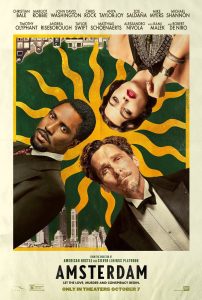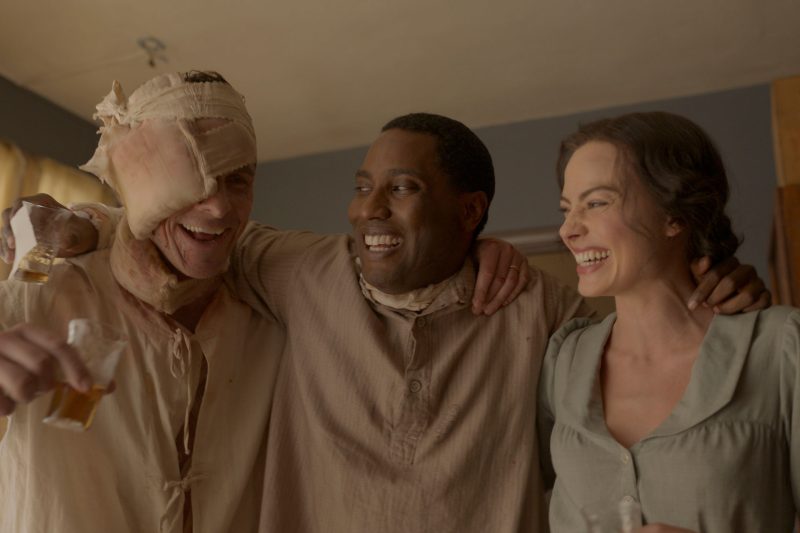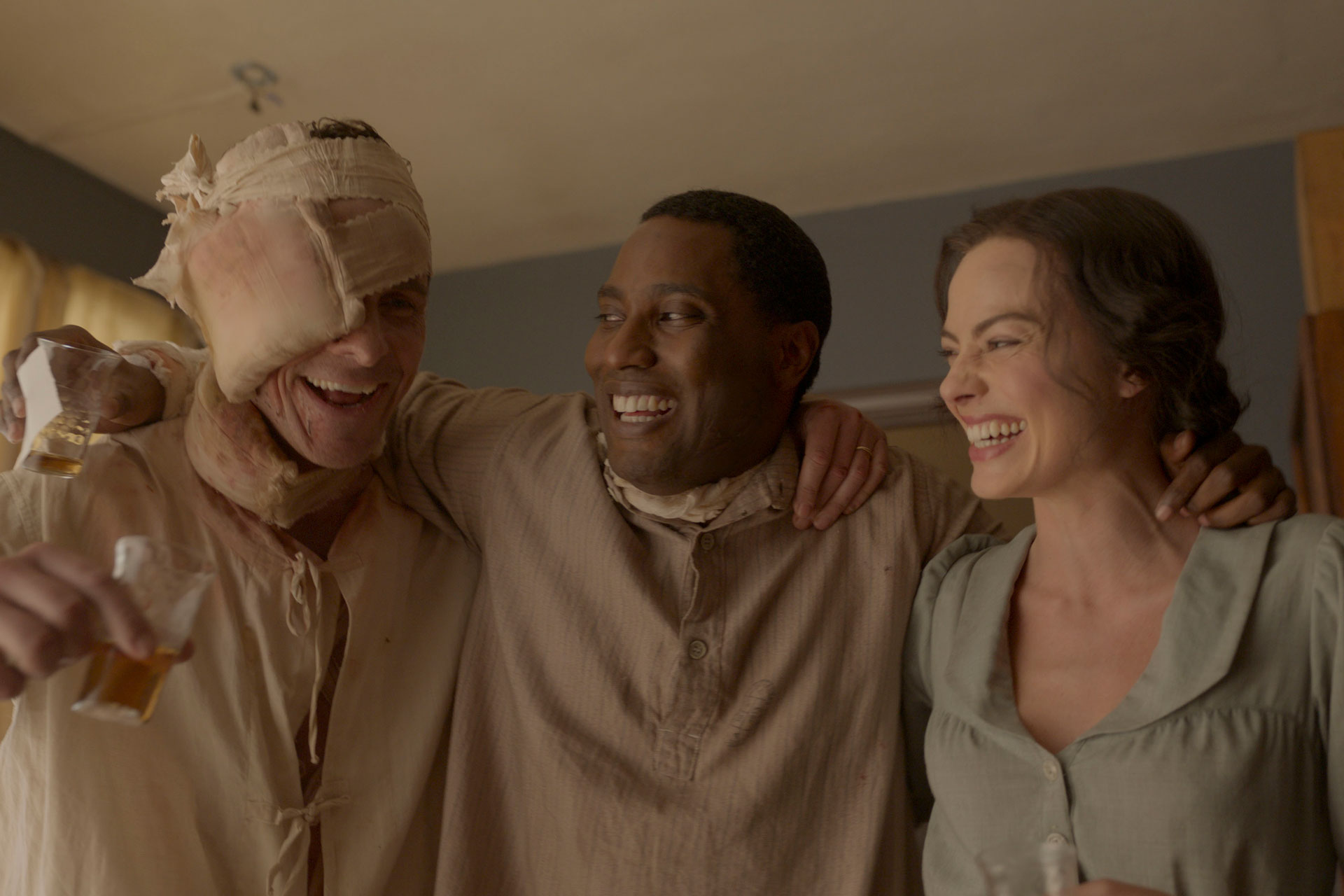
Three fast friends fight to uncover a nefarious plot in Amsterdam.
Two wounded American soldiers (Christian Bale and John David Washington), bonded by the horrors of the battlefield, are sent to recuperate in a gloomy military hospital. They’re both instantly drawn to a quirky nurse (Margot Robbie) who fits the scene in much the same way that a size-10 foot adorns a size-7 shoe. Together, they begin to build new lives in the peaceful surroundings of Amsterdam.
Flash forward 15 years. Now residing in New York, Burt (Bale) and Harold (Washington) are summoned to a clandestine meeting where they learn that their vibrant brigade commander died suddenly under mysterious circumstances. Nothing about the story adds up, and the pair decide to set off to find answers. Neither man could anticipate the dominoes set in motion by their actions.
The latest film from writer/director David O. Russell (American Hustle and Silver Linings Playbook) starts off with a simple claim reminiscent of the one that he used at the start of American Hustle by proclaiming that “A lot of this really happened.” The difference is that, this time, it’s not quite so true. The core plot is based in reality, but most of the characters are pure works of fiction.
Much of this film has the feel of American Hustle, for better and worse. Like that film, Amsterdam is loaded with style, almost to the point of invoking a Wes Anderson vibe, but not quite. What results is a plethora of pomp, but little requisite circumstance.
The visual beauty of the film, of which there is much, is undercut time and again by unnecessary missteps. Many of the characters are distractedly caricatured. The worst offender is Bale. Burt lost an eye in the war, causing him to continually have to fiddle with a replacement glass eye. His fumbling is funny the first time or two, but Russell returns to it far too often. The same is true of the cornucopia of characters. They pop in and out like a chipmunk on amphetamines, each with their own stilted dialogue or eccentric mannerisms. Robbie, sporting her natural dark locks, and Washington are the only ones spared from such shenanigans. As a result, they’re the only ones who feel genuine.
Early on, the plot is filled with intrigue, but quickly becomes overburdened by Russell’s attempt to take on a dozen different societal maladies. The overriding theme is that this tale from the 1930s is just as relevant in today’s America. It’s a story about the power and greed of corrupt corporations and their rich, equally corrupt benefactors. It’s also a thinly-veiled reminder of just how easily a nation can slip into fascism. Sound familiar?
There are some wonderful moments, but no more than stray rays of sun on an overcast afternoon. Amsterdam‘s biggest draw may be its cavalcade of A-list actors, but its biggest takeaway is to prove once again that all that glitters is not gold.



